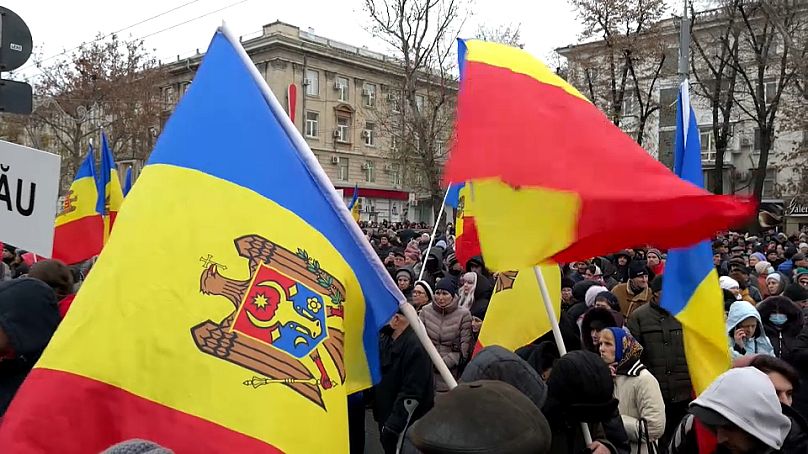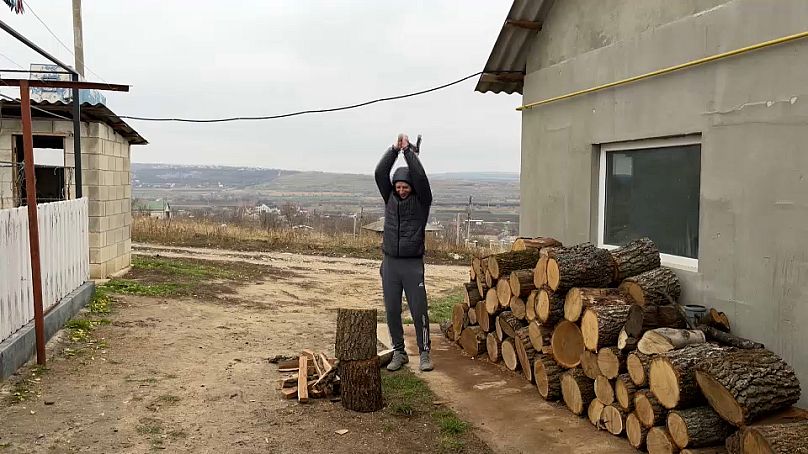Moscow is using energy as a weapon against Moldova. Residents there have taken to the streets in the capital Chisinau, to protest against the pro-European government.
Moldova is facing a major energy crisis. Electricity supply from Ukraine has been interrupted since Russian forces stepped up attacks on Ukrainian power plants and energy infrastructure. The Russian gas giant Gazprom has reduced gas deliveries to Moldova. Now, blackouts are increasingly frequent.
Moscow is using energy as a weapon to destabilise the country. Indeed, residents have taken to the streets in the capital Chisinau, calling for the pro-European government to resign.
The Moscow-influenced Șor party behind the protests
“Certain political parties in Moldova have been financed through the Russian intelligence services”, said Veronica Dragalin, Moldova's anti-corruption chief prosecutor.
Dragalin told Euronews that investigators had found twenty black bags with the equivalent of around €200,000 in cash.
They claim that is evidence that the demonstrations are financed by the Moscow-influenced Șor party. Its leader, the populist oligarch Ilan Șor, is on the run. He is accused to be part of a one-billion-dollar bank fraud.
The president of the Orhei District, Dinu Turcanu, and member of the Șor Party, is the alleged organiser of the protests.
“Ilan Șor said publicly, that this money should have been used to cover certain expenses of the party and of those people that went demonstrating", he told Euronews. "There is nothing illegal about it”, he claims.
Moldova turns to Europe to diversify its electricity and gas supply
Moldova’s energy dependency on Russia dates back to the Soviet era. However, governments have been trying over the years to diversify the country’s energy supplies.
A new gas pipeline coming from Romania has made Moldova less dependent. There are also plans to build several overhead power lines towards western Europe.
Andrei Spînu, one of Moldova's deputy prime ministers, blames Gazprom for the energy crisis. He is convinced that the Reducing Vulnerability Fund will enable “people to pay their gas, electricity or heating consumption”. The €250 million fund is financed by the European Union and prioritises vulnerable families.
Thanks to this scheme, the Beschier family, in the village of Todirești, has been able to receive three cubic metres of wood. They have a brand-new gas heater, but it was too expensive to operate.
They fear that they won't have enough wood to last throughout the winter.
The family also uses EU-subsidised gas to cook. The Beschier's are concerned about their electricity bills which have more than doubled since March 2022.
Moldova has the highest inflation rate in Europe, currently sitting at 34 per cent.












